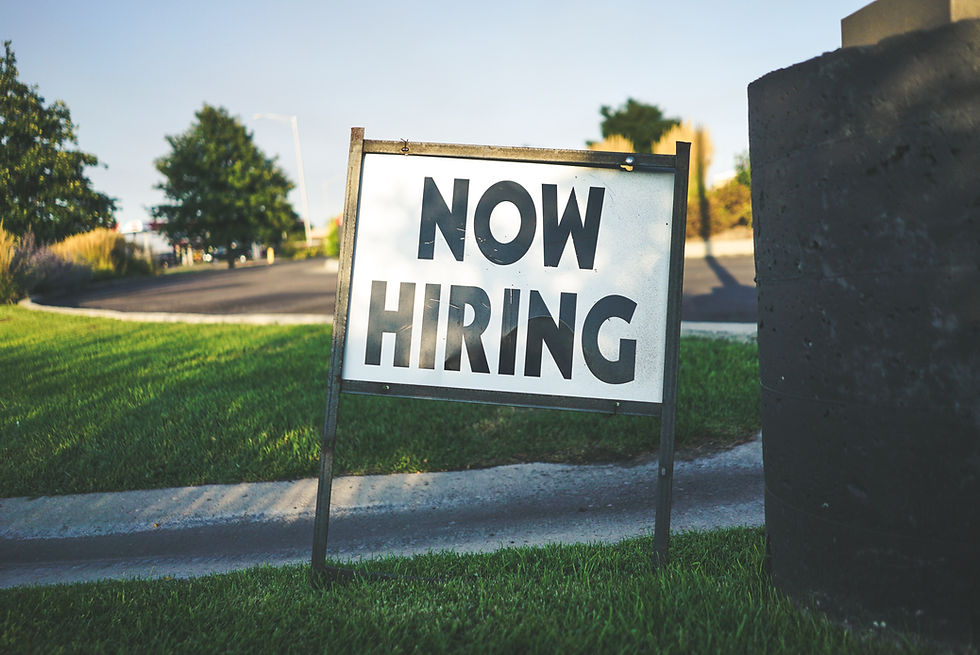Interview skills: The knack to answering competency based questions
- Amy Solon

- Sep 26, 2020
- 3 min read
Updated: Aug 9, 2022

COVID19 has had an immediate and profound impact on many businesses. There are many people who are now, for various reasons looking for new positions within the job market.
For some, the stress and worry of simply thinking about performing in a job interview can be overwhelming. Maybe you have been in the same job for many years. Maybe you are a parent returning to the workplace who has not been to a job interview for some time. Maybe even ever. Or maybe just the word ‘job interview’ strikes fear into the very core of your being; which is very usual too for many people.
This fear can prevent many people from performing effectively in a job interview. This fear can present itself in many different ways:
· A pounding heart
· Feeling sick in the stomach or a sensation of butterflies
· Not being able to get words out as effectively as you might like
· A feeling of wanting to run away
· A fear that your mind is going to go blank when asked a question
· Sweaty or clammy hands
· Blushing
The good news is that there is a lot that you can do to support yourself to perform well in job interviews. I have successfully worked with countless clients to prepare them for job interviews. In this series of blogs, I am going to talk through some of the key things to consider when you are going for interview. Today, let’s talk about answering competency based interviews.
There is most definitely a knack to answering competency questions and it is useful to get some practice in before you go for your interview. Here are some tips to help you on your way.
It is good to give a wide variety of answers from your work, study, volunteering and personal life. Make sure that you give a different example for each question asked.
There is no need to go into too much background detail when answering competency questions. Your interviewer only wants to know about your past behaviours and how you can apply your knowledge, skills, experience and attitude to the role in question.
Keep your answers SPECIFIC. If you are asked about your role in a team, it is not enough to say ‘I work as part of a team every day and therefore I am a good team player’.
Make sure that your answers are relevant to the questions asked. It is better to have a suitable answer than one that is more impressive or elaborate.
Stick to the truth! Your interviewer will know if you are lying.
Finally, when answering competency based questions, there is a fantastic formula (that sadly I cannot take credit for) that can help you structure your questions. It is called the STARR formula.
The 'STARR' formula:

Start by describing the Situation, then the Task, then the Actions, the Results and finally your Reflections. Let’s look at these each in turn:
Situation: What was the situation? When did it take place?
Task: What was the task that needed to be accomplished and what were the objectives?
Actions: What specific actions did you take to make sure the end result was achieved?
Result: What was the outcome of your actions? What was achieved? What did you learn from the experience? (You may also want to say something about how you have used the learning since)
Reflection: What have you learned from the experience? What would you do differently if you were to approach the same situation again? What have you learned? How can you apply your learning in other contexts?
By following this process, you are giving a very clear structure to your answer. It will also help to keep you on track when you are answering your interviewer’s questions.
A final tip that I always suggest to my interview performance clients is, to go for a walk in advance of your interview and practise your questions aloud. You will be amazed at how the question will refine itself after you have practised it a few times in different iterations. You will get a feel for how the question sounds and how you could change it to pack an even greater punch! Feedback from my own clients is that this simple practice really helps more than they expected it would.
In my next blog in this series, I will write about how focus your body language effectively in preparation for an interview.
I offer a hybrid coaching/ hypnotherapy for interview performance. This equips you with practical interview skills and the mindset to power through the interview process and land the job of your dreams. If you would like to arrange a complimentary and no obligation phone/ Zoom call to discuss how I can support you, please get in touch via my Facebook page or via email at amy@elementshypnotherapy.com






Comments